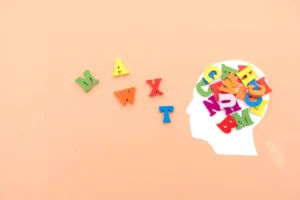Did You Know? Addiction Can Rewire the Brain’s Reward System
This article has been researched and written by Dure Najaf. AI has not been used in producing this article.
The Brain’s Built-In Motivation System. Our brains are wired to seek out things that keep us alive, focusing on essentials like food, connection, comfort, and achievement. When we do something enjoyable, the brain releases dopamine, a neurotransmitter that signals “that felt good, do it again.” Dopamine doesn’t simply create pleasure; it teaches the brain which actions are worth repeating. In a healthy brain, dopamine levels rise in response to natural rewards, such as a good meal, laughter with friends, or completing a goal, and then return to baseline. This ebb and flow helps us stay motivated, balanced, and connected to everyday sources of joy.
What Happens During Addiction
When someone repeatedly uses a substance such as alcohol, nicotine, or drugs, or engages in an addictive behaviour like gambling, this natural system becomes overstimulated. Substances can release up to 10 times more dopamine than natural rewards. At first, that rush feels powerful, but over time, the brain adapts. To protect itself from constant overstimulation, it downregulates dopamine receptors and reduces its own natural dopamine production. The result? Every day experiences that once felt satisfying, spending time with family, listening to music, or pursuing hobbies, begin to feel flat or meaningless.
This phenomenon is sometimes called “the hijacked brain”. The reward system starts to prioritise substance over everything else. The brain learns: nothing feels as rewarding as the drug. This isn’t a conscious choice; it’s a neurological shift that makes the person crave the substance just to feel “normal.”
The Vicious Cycle of Diminishing Reward
Because natural pleasures no longer produce the same dopamine response, the person may use even more of the substance to chase the original high. But the more they use, the more the brain downregulates dopamine. It’s a loop that feeds itself; not out of pleasure, but out of a desperate attempt to escape discomfort or emotional emptiness. This explains why people in recovery often say they feel “numb” or unmotivated in early sobriety. Their brains are recalibrating. It takes time, sometimes months, for the reward system to rebuild its sensitivity and for natural sources of joy to feel meaningful again.
Hope and Healing: The Brain Can Rewire
The encouraging news is that the brain is remarkably plastic it can heal and form new pathways. With sustained recovery, therapy, and healthy routines, dopamine systems begin to rebalance. Small, consistent positive experiences like exercise, sleep, connection, creative activities, and mindfulness gradually retrain the brain to produce and respond to dopamine naturally. The process may be slow, but every small step literally reshapes neural circuits toward wellness.
The Role of Therapy and Support
From a clinical psychology perspective, recovery isn’t just about stopping the substance; it’s about re-training the reward system and developing new coping mechanisms. Therapies such as EMDR, Cognitive Behaviour Therapy (CBT), Motivational Interviewing (MI), and Acceptance and Commitment Therapy (ACT) help individuals understand triggers, strengthen self-regulation, and reconnect with meaningful activities. Equally important is connection; relationships and social belonging stimulate the same brain areas as chemical rewards. Human warmth, empathy, and shared purpose are some of the most powerful dopamine boosters we have.
Famous People with Dyslexia
Representation matters especially when there is a stigma around dyslexia and learning disabilities in general …
Third Culture Kids: Growing Strong Roots in a Mobile World
In a city like Dubai, it is not unusual to meet a child who has already lived in three countries, attended four different …
What Can I Do If Someone Is Bullying Me at School?
If someone keeps being mean to you, teasing you, hurting you, or leaving you out on purpose, this is called bullying…
Micro-Recovery: TraumaInformed Coping Tools Adults Can Use in Daily Life
Our nervous system is under constant pressure and stimulation. When you add the layer of …
Did You Know – Joyful Memories Can Be a Source of Pain?
I can’t count the number of clients who tell me: “Why does my brain only bring back negative thoughts?” – let’s explore
What Really Happens Behind the Door of Couples Therapy?
Couples don’t usually come to therapy because they stopped caring about each other – they …







